subscribe or unsubscribe
new email address?
send us your comments
version française |

|
Winter 2010/Spring 2011
Issue no. 17 |
|
| Welcome to the European Language Gazette, an online newsletter keeping you up to date with news about ECML events, projects and resources as well as developments in the Language Policy Division and other relevant sectors of the Council of Europe´s work. The Gazette is published two times a year in Summer/Autumn and in Winter. Subscribers are informed by e-mail when each new issue is published. We hope you appreciate this issue and look forward to your feedback. |
|
The ECML invites submissions for its fourth medium-term programme (2012-2015)
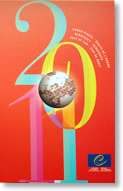 The projects of the current ECML programme (2008-2011) will come to an end in autumn 2011. An international conference will be organised on this occasion to promote the results of these projects as well as presenting the future orientations of the Centre’s work. The projects of the current ECML programme (2008-2011) will come to an end in autumn 2011. An international conference will be organised on this occasion to promote the results of these projects as well as presenting the future orientations of the Centre’s work.
This special issue reveals the general orientation of the future work of the ECML and is dedicated to the Call for submissions for the next medium-term programme of activities 2012-2015.
back to top
|
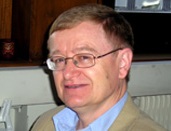 In 2012 the ECML will launch its new medium-term programme entitled “LEARNING THROUGH LANGUAGES: Promoting inclusive, plurilingual and intercultural education”. Projects within the programme will contribute to the Council of Europe’s work promoting quality education for all. In 2012 the ECML will launch its new medium-term programme entitled “LEARNING THROUGH LANGUAGES: Promoting inclusive, plurilingual and intercultural education”. Projects within the programme will contribute to the Council of Europe’s work promoting quality education for all.
Programme aims and key features
The 2012-2015 programme builds upon the Centre’s previous work and widens its scope, for the first time moving beyond the foreign language classroom to include all linguistic abilities and the needs of all groups of learners. The programme aims to achieve significant impact on learning by:
- developing practical tools and materials either directly for the use of learners or for teachers, teacher educators and/or other actors in the field of education;
- communicating and disseminating results of ongoing and completed ECML projects to key stakeholders.
In addition to the wider scope of the new programme, some of the distinguishing features, compared with the Centre’s previous work, are:
- The focus on the learner: following the current “Empowering language professionals” programme the focus will shift from the language teacher to the learner. Not only on the language learner attending a foreign language classroom but to all learners, based on the premise that from the moment that communication is involved all individuals can be considered as language learners.
- In order to target all learners the emphasis in the new programme is placed on inclusive, plurilingual and intercultural approaches which fully build upon Council of Europe policies in this area. The inclusive approach will involve learners from all backgrounds be they migrant, special needs, majority...
- Lifelong learning: formal and informal/non-formal contexts. One of the challenges of the programme will be how to motivate a learner outside the formal learning context, so that, for example, learning continues well beyond the compulsory period of schooling.
- A ‘mediation’ strand of work encourages dialogue with new stakeholders involved in the education process including representatives of parents associations, businesses, heads of schools, and multipliers of regional networks.
- A flexible approach – applicants have two possibilities for becoming involved in the programme. Applicants can either submit a project proposal together with a team of experts on the themes defined within the Call or apply as individuals to one of the tender projects (priority areas of interest defined by the ECML where a project outline has been developed).
The main target audiences for the Call are:
- experts and researchers in language education, teachers and teacher trainers of all languages;
- experts in education with a strong interest in language education;
- representatives of related organisations/associations with a stake in good quality language education (e.g. parents associations, school boards, business sector).
Getting involved
We hope that you will consider actively participating within the new programme. Just a few of the potential personal and professional benefits for participation in the ECML’s work which you may value are:
- giving a broader scope to your work in a cutting edge European institution;
- developing your expertise in cooperation with participants from 34 ECML member states;
- having opportunities to create, innovate and publish;
- being able to achieve significant results with the support, funding and infrastructure of the ECML.
The ECML tries to reduce the administrative burden relating to the coordination a large-scale European project to a minimum by assuming responsibility for: logistics, financial management related to the running of all projects, structuring the projects using tried and tested event formats, as well as for the production of the final project products. Guidance and consultancy is provided to project teams by the secretariat and dedicated programme consultants. The Centre’s well-equipped premises in Graz are put at the disposal of the projects.
This special issue of the European Language Gazette will guide you through the Call for submissions.
We hope that you will find the programme orientations inspirational and look forward to receiving your project proposals and/or tender applications before 1 May 2011.
We would like to take this opportunity to thank you in advance for your contributions and to wish you all a Very Happy New Year.
Waldemar Martyniuk
Executive Director
back to top
|
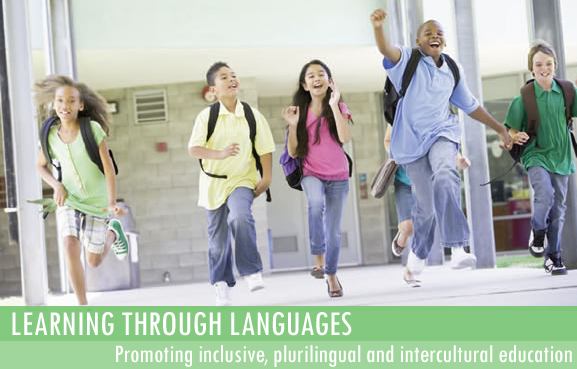 The Council of Europe aims at maintaining and enhancing linguistic and cultural diversity in Europe and promoting learning and use of languages as a means to support intercultural dialogue, social cohesion and democratic citizenship, and as an important economic asset in a modern knowledge based society. The next medium-term programme of activities 2012-2015 of the European Centre for Modern Languages of the Council of Europe (ECML) is anchored in this political context. It is entitled: The Council of Europe aims at maintaining and enhancing linguistic and cultural diversity in Europe and promoting learning and use of languages as a means to support intercultural dialogue, social cohesion and democratic citizenship, and as an important economic asset in a modern knowledge based society. The next medium-term programme of activities 2012-2015 of the European Centre for Modern Languages of the Council of Europe (ECML) is anchored in this political context. It is entitled:
“LEARNING THROUGH LANGUAGES:
Promoting inclusive, plurilingual and intercultural education”.
For more details see: Call brochure, section 3.1, 3.2, 3.3, Appendix I, Appendix II
back to top
|
This new programme reflects both the mission of the ECML and the current concerns of its member states and partners in the area of language education. It is based on a long-term vision aiming at developing inclusive, plurilingual and intercultural pedagogic approaches reaching beyond the foreign language classroom and encompassing all linguistic abilities and needs of all groups of learners in a lifelong-learning process (in-school and out-of-school).
Pedagogic approaches following inclusive, plurilingual and intercultural thinking are practical steps to undertake in order to achieve good quality education for all:
- Inclusive approaches are being promoted as a way to provide learning environments that allow for democratic, effective and sustainable learning processes, outcomes and output for the benefit of all. Following this ideal, the ECML programme intends to further elaborate the obvious link between linguistic and intercultural competences and inclusion to identify approaches for practical implementation in the classroom.
- Plurilingual education and resulting pedagogic approaches aim at respecting and developing each learner’s language repertoire, enabling the speaker to use languages with different degrees of proficiency and adapted to different contexts (home, school, public, private, professional, etc.). Plurilingual education ideally complements the inclusive and intercultural components of the envisaged pedagogic approaches.
- In view of the role of intercultural dialogue in the context of democratic citizenship and human rights education intercultural education needs to become a constituent part of formal education and a nurtured element of the informal/non-formal learning context in good quality education in Europe.
For more details see: Call brochure, section 3.4, 3.5, 3.6
back to top
|
Projects carried out under the new ECML programme are expected to either contribute to the development or the mediation strand of the ECML work scheme.
Development projects – forming the ECML long-term vision
Development projects carried out in the ECML programme target the foreign language classroom as well as all other subject areas of education taking place in school and in out of school contexts. They are expected to explore the respective teaching and learning contexts by focusing on inclusive, plurilingual intercultural pedagogic approaches and develop ways of addressing the resulting needs identified by member states.
Targeted areas:
- Foreign language classroom
- Majority language classroom
- Classroom for other languages
- Subject classroom
- Informal/non-formal learning
For more details see: Call brochure, section 4.1
Mediation projects – dissemination of developments and dialogue with stakeholders
How can ECML project publications reach the target groups on a large scale so that the end-user, the
Target groups:
- ECML regional multipliers: in order to build up, support and sustain regional networks (incl. cross-border partnerships and European cooperation) engaging in implementing ECML work;
- Stakeholders in society: parents via parent associations, key partners in the schooling process (school boards, heads of schools etc) and representatives from the business world.
For more details see: Call brochure, section 4.2
back to top
|
The collective project outcomes and outputs represent the achievements of the ECML programme which are expected to have an impact on learning.
Expected outcomes of the programme include:
- Promotion of inclusive, plurilingual and intercultural pedagogic approaches;
- Initiating and supporting dialogue between professionals of language and subject-specific domains:
- Involving new target groups (e.g. parents, the business sector);
- Awareness-raising related to the ECML long-term vision.
Expected outputs of the programme include:
- Publications resulting mainly from development projects, responding to the ECML long-term vision and providing practical tools for quality education at classroom level;
- Networks comprising target groups beyond the foreign language education sector;
- Evidence of positive responses to implementation of the long-term vision through mediation activities;
- Evidence of impact on defined groups targeted by projects within the programme.
For more details see: Call brochure, section 4.3
back to top
|

Submissions are sought from:
- experts and researchers in language education, teachers and teacher trainers of all languages;
- experts in education with a strong interest in language education;
- representatives of related organisations/associations with a stake in good quality language education (e.g. parents associations, school boards, business sector).
Applicants should be living and working in a member state of the ECML. In exceptional cases, applications from non-member states as team members (not as coordinators) can be accepted.
Although submissions may be made by individuals acting on their own behalf, experience shows that it is preferable for individuals to be supported by their institution, network or association.
For more details see: Call brochure, section 1, 2, 5.1, 5.3, 6.1, 6.2
back to top
|
The ECML is seeking two kinds of submissions:
- proposals for projects on a specified area of the programme scheme; and
- tenders – individual expressions of interest in leading or contributing to projects outlined by the ECML.
|
PROJECT PROPOSALS
For teams - to propose a project relating to one (or more) of the working areas of the programme (see Call brochure, section 4) and to one of the following themes (see Call brochure, section 5.2):
- Support for migrant language education
- Regional or minority languages
- Sign languages and language provision for the blind and visually impaired
- Evaluation and assessment
- Innovative approaches in foreign language learning
|
|
TENDERS
For individual professionals - to apply to take part in/coordinate one (or more) of the tender projects, relating to one of the working areas of the programme (see Call brochure, section 5.3):
- Foreign language classroom
- Majority language classroom
- Classroom for other languages
- Subject classroom
- Informal/non-formal learning
- Mediation projects
|
|
Deadline for project submissions: 1 May 2011.
Final selection of project proposals to be included in the programme: September 2011.
|
|
Application deadline: 1 May 2011.
Applicants for team membership will be informed on the status of their application in January 2012.
|
The number of submissions per person is not limited (i.e. it is possible to apply for more than one project within the tender process and to submit one or more project proposal).
Submissions can be sent at any time before the respective above mentioned deadlines to the address call@ecml.at
For more details see: Call brochure, section 2, 4, 5, 6
back to top
|
There are six different team roles possible within the programme:
- project coordinator,
- website correspondent,
- second working language documentalist,
- team member,
- mediation link person (only for development projects),
- associate partner.
For more details, see Call brochure, section 6.2
back to top
|
ECML projects will be conducted in two working languages – usually English and French. Interpretation in these languages will be provided for central workshops.
General communication with the ECML may take place in English, French or German.
To encourage participation of speakers or teachers of other languages, ONE of the two official languages may be replaced by another language.
Project teams are strongly encouraged to look for creative ways of involving further languages where possible in project activities (i.e. in group work, regional events, national activities, etc.).
For more details, see Call brochure, section 6.7.
back to top
|
Project proposals
Project proposals are selected according to the following criteria:
- relevance to the mission of the ECML
- added avalue for developing and implementing the ECML long-term vision
- quality of project design
- sustainability of project processes and results
- potential impact on learning for the benefit of the learner.
Tenders
Applicants as project coordinators are selected within the framework of the project proposals and according to:
- their expertise and experience in the relevant project domain
- their affiliation to relevant networks
- their experience in international cooperation
- their project management skills and motivation.
Applicants as a team member are nominated by the coordinator selected for a project in cooperation with the ECML according to their
- expertise and experience in the relevant project domain
- affiliation to relevant networks
- experience in international cooperation
- expertise and experience.
For more details see: Call brochure, section 6.11, Appendix II
Application forms
back to top
|
Support provided by the ECML
The ECML is responsible for logistics, budgetary matters and financial management relating to the running of all projects within the programme as well as for the production of the final project products.
For more details, see Call brochure, section 6.3
Involvement of the national authorities of the member states in ECML project work
The ECML works in direct cooperation with its member states, in particular through the instances listed below which support the Centre’s work and ensure effective structures for decision-making, selection of participants for activities and widespread dissemination of results at national level:
For more details, see Call brochure, section 6.4
back to top
|
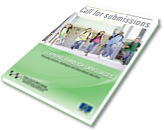
The Call brochure is available both
- for download as a PDF and
- in full text on the dedicated website.
Also a short flyer for promoting the Call is available both on the website and in printed copies.
If you would like to receive printed copies of the Call, please send your request to the address information@ecml.at
back to top
|
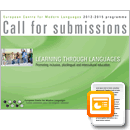 The website acts as an on-line reference tool for persons wishing to be involved in the ECML’s 2012-2015 programme and includes the following sections and resources: The website acts as an on-line reference tool for persons wishing to be involved in the ECML’s 2012-2015 programme and includes the following sections and resources:
- The Application Forms section provides
- the Project Proposal Submission Form for candidates wishing to propose projects,
- the Tender Project Coordinator Application Form for candidates wishing to coordinate an ECML tender project, and
- the Tender Team Member Application Form for candidates wishing to participate as a team member in an ECML tender project
- The online Glossary explains a number of key concepts used in the Call.
- The FAQ section gives guidance on the submission process.
- The supporting Materials section includes the promotional flyer of the Call and a powerpoint presentation that might be used to present the Call to your wider audience.
- The Activities section lists events at national level relating to the promotion of the Call for submissions that are proposed by representatives from the ECML member states.
back to top
|
|
|
 The projects of the current ECML programme (2008-2011) will come to an end in autumn 2011. An international conference will be organised on this occasion to promote the results of these projects as well as presenting the future orientations of the Centre’s work.
The projects of the current ECML programme (2008-2011) will come to an end in autumn 2011. An international conference will be organised on this occasion to promote the results of these projects as well as presenting the future orientations of the Centre’s work. In 2012 the ECML will launch its new medium-term programme entitled “LEARNING THROUGH LANGUAGES: Promoting inclusive, plurilingual and intercultural education”. Projects within the programme will contribute to the Council of Europe’s work promoting quality education for all.
In 2012 the ECML will launch its new medium-term programme entitled “LEARNING THROUGH LANGUAGES: Promoting inclusive, plurilingual and intercultural education”. Projects within the programme will contribute to the Council of Europe’s work promoting quality education for all. The Council of Europe aims at maintaining and enhancing linguistic and cultural diversity in Europe and promoting learning and use of languages as a means to support intercultural dialogue, social cohesion and democratic citizenship, and as an important economic asset in a modern knowledge based society. The next medium-term programme of activities 2012-2015 of the European Centre for Modern Languages of the Council of Europe (ECML) is anchored in this political context. It is entitled:
The Council of Europe aims at maintaining and enhancing linguistic and cultural diversity in Europe and promoting learning and use of languages as a means to support intercultural dialogue, social cohesion and democratic citizenship, and as an important economic asset in a modern knowledge based society. The next medium-term programme of activities 2012-2015 of the European Centre for Modern Languages of the Council of Europe (ECML) is anchored in this political context. It is entitled:


